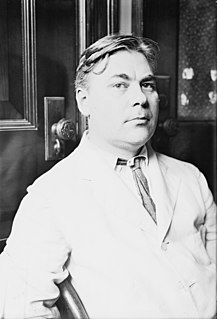A Quote by Rumi
Love is a madman, working his wild schemes, tearing off his clothes, running through the mountains...
Related Quotes
Do me a favor?” he whispered. Beth's hold tightened on his hand. ”Anything, what do you need?” ”Hum the Jeopardy theme.” There was a pause.Then Beth burst out laughing and swatted his shoulder. ”Wrath-” ”Actually,take your clothes off and hum it while doing some belly grooves.” As his shellan bent down and kissed his forehead, he looked up at her through his wraparounds. ”You think I'm kidding? Come on, we both need the distraction. And I promise I'll tip well” "You never carry cash." He extended his tongue and swept it over his upper lip. "I plan on working it off.
Patch was dressed in the usual: black shirt, black jeans and a thin silver necklace that flashed against his dark complexion. His sleeves were pushed up his forearms, and I could see his muscles working as he punched buttons. He was tall and lean and hard, and I wouldn't have been surprised if under his clothes he bore several scars, souvenirs from street fights and other reckless behavior. Not that I wanted a look under his clothes.
The famous Zen parable about the master for whom, before his studies, mountains were only mountains, but during his studies mountains were no longer mountains, and afterward mountains were again mountains could be interpreted as an alleory about [the perpetual paradox that when one is closest to a destination one is also the farthest).
Pain! Deep, tearing, throbbing, needle-sharp, hammer-blunt pain – ripping through his body and through his mind, twisting deep in his guts and slicing at his skin with razors and broken glass. Oskan wanted to scream, but his vocal cords had burned away. He was desperate for water and he could hear it dripping all around him, but his charred tongue found nothing in his mouth but blisters and scorched flesh. For hours he lay on the ropes of the low bed, unable to move, the pressure of the hemp on his destroyed skin sending new agonies deep into his body.
she glanced down and saw that a glove of blood covered her lower arm from the elbow to the wrist. The arm was throbbing, stiff, and painful. "Is this when you start tearing strips off your T-shirt to bind up my wound?" she joked. She hated the sight of blood, especially her own. "If you wanted me to rip my clothes off, you should have just asked." He dug into his pocket and brought out his stele. "It would have been a lot less painful.
The master in the art of living makes little distinction between his work and his play, his labor and his leisure, his mind and his body, his information and his recreation, his love and his religion. He hardly knows which is which. He simply pursues his vision of excellence at whatever he does, leaving others to decide whether he is working or playing. To him he's always doing both.
The cat will keep his side of the bargain. He will kill mice, and he will be kind to babies when he is in the house, just so long as they do not pull his tail too hard. But when he has done that, and between times, and when the moon gets up and night comes, he is the Cat that walks by himself, and all places are alike to him. Then he goes out to the Wet Wild Woods or up on the Wet Wild trees or on the Wet Wild roofs, waving his wild tail and walking by his wild lone.
Was it love of people?' I asked her. 'Of course no,' she snapped sharply. 'How can you love ignorant, brutish people whom you don't even know? Can anyone love filth and squalor? Or lice and rats? Who can love aching weariness, and carry on working, in spite of it? One cannot love these things. One can only love God, and through His grace come to love His people.
The goddess Artemis had a twin brother, Apollo, the many-faceted god of the Sun. He was her male counterpart: his domain was the city, hers the wilderness; his was the sun, hers the moon; his the domesticated flocks, hers the wild, untamed animals; he was the god of music, she was the inspiration for round dances on the mountains.






































